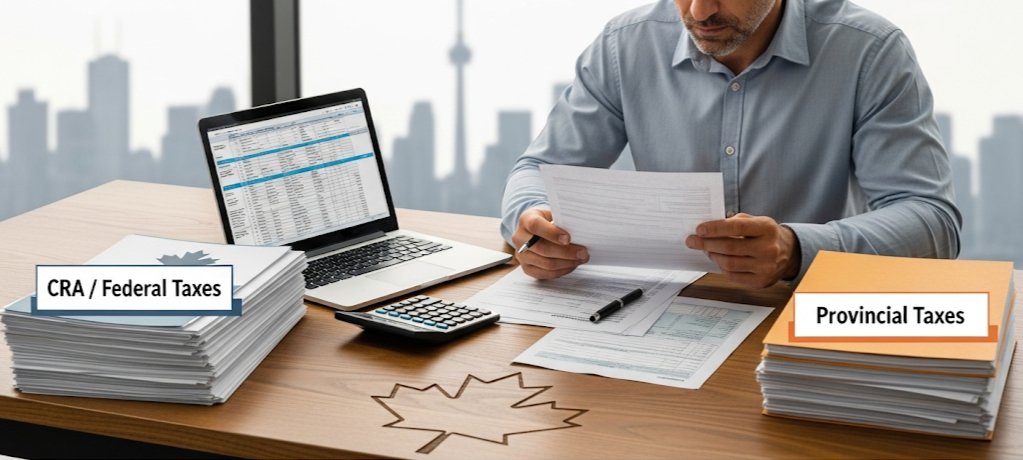Tax time in Canada often spells confusion for individuals and business owners trying to interpret the differences between federal and provincial taxes. Knowing the nuances of the Canada Revenue Agency taxes in comparison with provincial tax laws is necessary in order to avoid errors and the subsequent penalties.
With the appropriate advice, it is possible to adhere to compliance standards while taking full advantage of the available deductions and credits.
Understanding Canada Revenue Agency Taxes
CRA (Canada Revenue Agency) is responsible for levying taxes on behalf of the federal government. Canada Revenue Agency taxes include:
- Federal income tax on personal and business income.
- GST (Goods and Services Tax) is applied across the country.
- Payroll source deductions, such as CPP (Canada Pension Plan) contributions and Employment Insurance (EI) premiums.
The above-mentioned taxes are applicable in every Canadian province, and they mark the essence of the national tax system. Correctly navigating these taxes often requires a CPA in Canada, particularly if your income is from various sources or you have complicated deductions.
Provincial Taxes Explained
In Canada, every province and territory is granted the authority to implement its own taxes, which are predominantly managed through contracts with the CRA. Quebec stands out as an exception, since it administers its own income tax directly. Examples of provincial taxes include:
- Provincial income tax rates vary from one province to another.
- Provincial sales tax or harmonized sales tax (HST) in some regions.
- Industry-specific levies, such as resource royalties, are imposed in certain provinces.
Since every province has unique regulations and rates, understanding Canada taxes at the provincial level demands thorough evaluation. For instance, a shift from Ontario to Alberta or telecommuting from one province to another can significantly change your total tax payable.
Key Differences Between Federal and Provincial Taxes
To simplify the distinction:
- Who collects? Federal taxes are collected by the CRA, while provincial taxes are collected either by the CRA or the province directly.
- What varies? Federal tax rates are uniform, but provincial rates vary widely.
- Credits and deductions: Both levels of government may offer credits, such as tuition, medical, or childcare credits, but their eligibility and amounts differ.
These differences highlight reasons that individuals and businesses often need professional services to handle filings proficiently.
Why Professional Guidance Matters
Attempting to file a federal return alongside a provincial return can be quite complicated. Mistakes or missed opportunities can mean paying more than one has to or perhaps an audit. A Canada CPA makes sure that your federal and provincial returns are correct and working together, and also looks for deductions and credits that help lower the amount of the Canada tax that one has to pay.
Conclusion
Though there is a single unified system, the federal and provincial taxes have differing rules and administration. Keeping track of changes is vital, but having expert assistance is much preferable as it guarantees precision and peace of mind. At SJT CPA, we have deeper knowledge in leading clients through the intricate details of Canada Revenue Agency taxes and other provincial tax matters.
Contact SJT CPA today for a consultation and let our team simplify your tax obligations so you can focus on what matters most.


